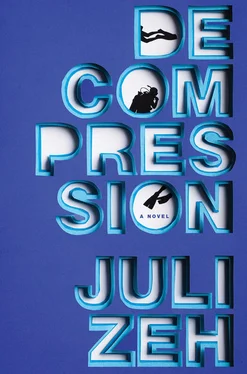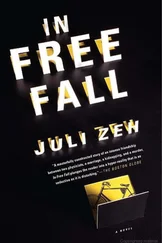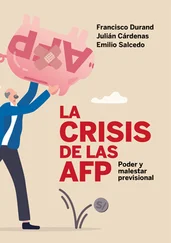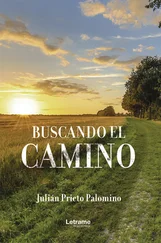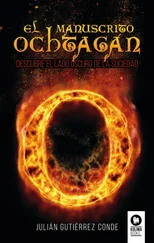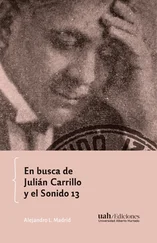I first noticed the coast guard when their Zodiac inflatable boat hove to alongside us. We were still two kilometers from land. Jola turned off the engine. All at once, the Aberdeen was full of people. The situation proved too much for me. I frantically warded off the rescue personnel’s hands. I may even have tried to keep them away from Theo. “No tocar! No se debe mover!” Don’t touch him, don’t move him . My own voice sounded shrill in my ears. Someone pushed me aside. They laid Theo on a stretcher and lifted him over the rail. Jola clambered over behind him. A guy from the rescue service grabbed my arm and tried to get me to leave the boat too. I struck out at him. The Aberdeen . I couldn’t just leave her out there. The Spaniards exchanged a few quick words, pointing to me and shaking their heads. “We be back here!” one of them called out in English. The outboard motor roared and the Zodiac sped away, leaving a wake of white foam behind it.
And suddenly I was alone. I savored the stillness. No people, no birds. A little wind and the lapping of the waves. The fading sound of the outboard motor as the Zodiac, now far off, hurtled landward. I made no move to get the Aberdeen under way again. I simply stood there. Still in my dive suit. I hadn’t even dried my hair. I couldn’t tell whether I was sweating or freezing. The here and now took my breath away, like a pressure of one thousand bars. As though I were lying on the deepest spot in the Atlantic Ocean. A helicopter rose up above Playa Blanca. It was the last I saw of Jola and Theo.
She’d hidden it in such a way that it would pretty much have to be found. Not placed it so obviously that it seemed to have been planted. Nor, however, was it concealed so well that any island police inspector, no matter how dim-witted, could overlook it.
I have hardly any memories of the day after the Wednesday diving expedition. It’s as though that whole Thursday has been expunged. Maybe I slept completely through it. Or spent it staring unseeing out the window, stupefied by the emptiness that surrounded me. On Friday morning I ran out of the house before breakfast, armed with vacuum cleaner and mop pail, as if my life depended on doing the usual post-guest cleaning in the Casa Raya. Normally that would have been Antje’s job. She would have done it on Saturday afternoon, right after Theo and Jola’s departure, so that the house would be ready for the Sunday arrival of our next clients. I, meanwhile, would have taken the day off. But Antje wasn’t there anymore, and I had three free days. I didn’t even dare to think about Sunday. It seemed to me completely implausible that I’d spend part of it waiting in the airport terminal, holding a sign with the names MARTIN & NANCY. That mental image belonged to a universe that no longer existed.
When I stepped into the Casa Raya, I felt as though someone had punched me in the pit of the stomach. They were still there. They’d left the house only briefly to take a stroll by the sea. At least, that was the statement their stuff made. Everything was hanging around as though still warm from contact with them. There were clothes on the floor. Toothbrushes in the bathroom. An open book on the dining-room table. Only the dried coffee dregs in the cups revealed that some time had passed.
I walked around for a while without knowing where to begin. The unmade bed. The remains of a hasty breakfast. Jola’s bikinis hanging over the shower-curtain rod. Tidying up and cleaning had never been my strong points. Most of all, however, I couldn’t bring myself to touch anything. The objects all looked to me like props in an amusement park’s haunted house.
Then my paralysis metamorphosed into a frenzy of activity. Swift as the wind, I gathered up all the clothes that were lying around and threw them into the washing machine. I cleaned out the closets and meticulously distributed their contents between the two wheeled suitcases. I carefully removed Lotte’s photograph from the wall. In the bathroom I packed the toilet kits, never taking longer than a second to decide what belonged to Jola and what to Theo. All at once, things sorted themselves. I washed the dishes, pulled the sheets off the beds, took fresh linens from the bathroom closet, and set about making the beds with the clean sheets. When I lifted up the big double mattress, there it was. On the slats underneath. A black notebook.
I knew immediately what I was looking at. The dates. The handwriting. A few pages torn out and then glued back in. I started reading at random:
What would Lotte have done? When I tried to get up, he put his hands around my throat. I told him to let me go. He tried to shove himself into my mouth. I clenched my teeth. He pressed on my windpipe. My lips opened and I gasped for air .
I dropped the notebook as though it had burned my fingers. Then I picked it up again and laid it on the table. When I’d finished vacuuming and dusting the whole house, cleaning the bathroom, and remaking the beds, when the two suitcases were standing packed and ready at the door, the black notebook was still lying there. The local police inspector would have jumped for joy. The discovery I’d made had been intended for him. If there was one person in the world who wasn’t supposed to get his hands on that notebook, that person was me.
Apparently Jola had figured on never going back to the Casa Raya. Even more certainly, she’d assumed that I would never set foot in it again. Had Theo drowned as planned, she would presumably have waited until I was back on board the Aberdeen and knocked me out with the water-pump pliers too. She’d have taken off my dive suit, maybe arranged a few signs of struggle, and then informed the police by radio. Help! My partner’s been killed! The murderer’s here, right next to me! Twenty-nine north, fourteen west. Please come quick! They would have arrested me while we were still at sea and taken me to the police station for questioning. Jola would have come along as a witness. The suspect: totally distraught. The witness: well prepared. Her statement carefully thought-out and more convincing than mine. Two rivals who have learned to hate each other’s guts in the past ten days come to blows on a boat. Between them is a woman who’s been abused by one of them and is trying to start a new life with the other. A woman too weak to prevent the catastrophe. Jola wouldn’t have accused me; instead she’d have sought, through her tears, to defend me. Confusion and anxiety in perfect balance. And, if possible, in fluent Spanish. It’s all my fault, Señor Comisario. Herr Fiedler was only trying to protect me. He was at his wit’s end, just as I was. I should never have told him about any of that. What would you do if you knew the woman you loved was being beaten by another man? Por favor, if you will, imagine that. What would you do?
I would have remained in custody. The stupid police inspector would have privately expressed his respect for me, man-to-man. Then he would have set to work checking Jola’s statement. He would have asked half the island about our affair. The guests on the Dorset would have been questioned concerning the previous evening’s bitter altercation. Divers would have been sent to look for Theo one hundred meters down and might even, in spite of the current, have found his body. With a bad head wound and scuba divers’ lead weights in his pockets. The police would have searched my house and, it goes without saying, the Casa Raya. And in the end, they would have discovered the rather ostentatiously hidden diary. Germany would have filed a request for extradition. My trial would have been held there.
In the course of the past few weeks, like a man obsessed, I’ve gone over Jola’s plan again and again. Its complexity. Its refinement. The sheer cold-bloodedness with which she’d developed and then implemented her calculations, one by one, carried along by her conviction that life works like a crime novel: no weak points allowed. Of course, one might believe that only a sick mind would be capable of such painstaking malice. But Jola isn’t crazy. It follows, therefore, by an argumentum e contrario , that what she did was normal. Maybe not strictly so, statistically speaking, but still within the ordinary human spectrum. Even though she did it extraordinarily well.
Читать дальше
